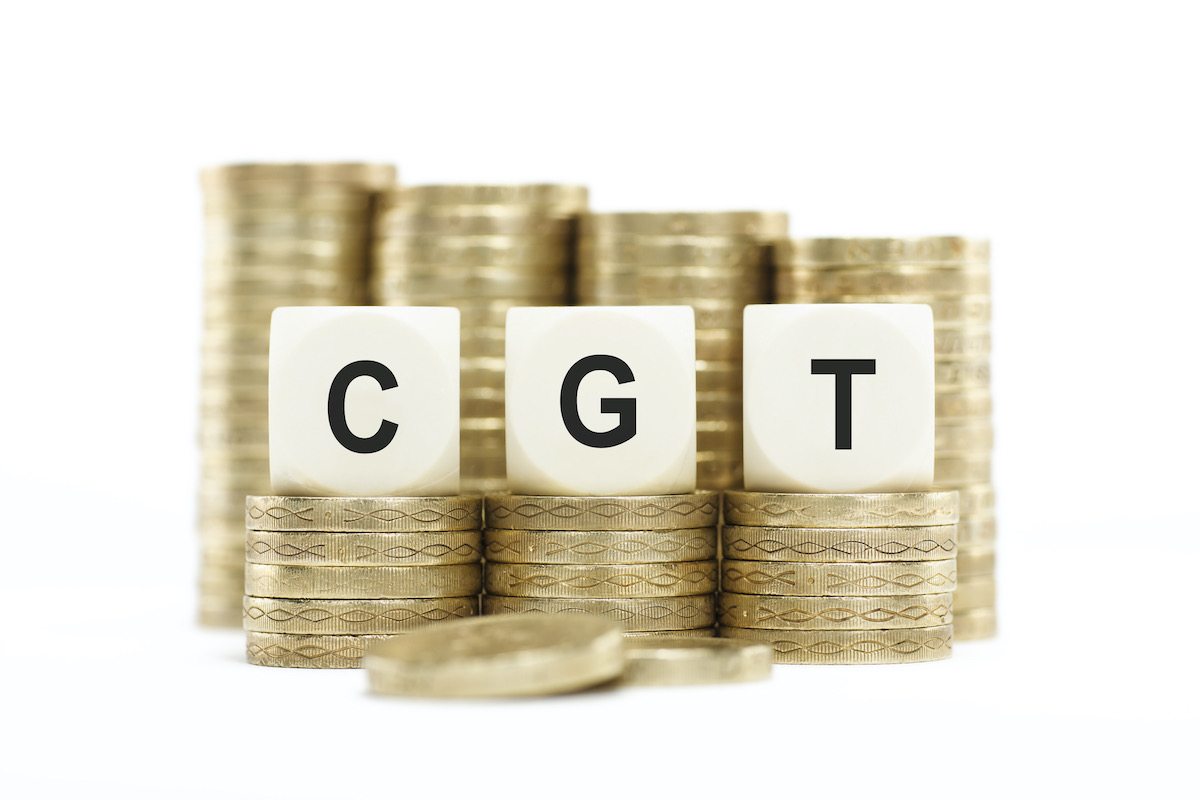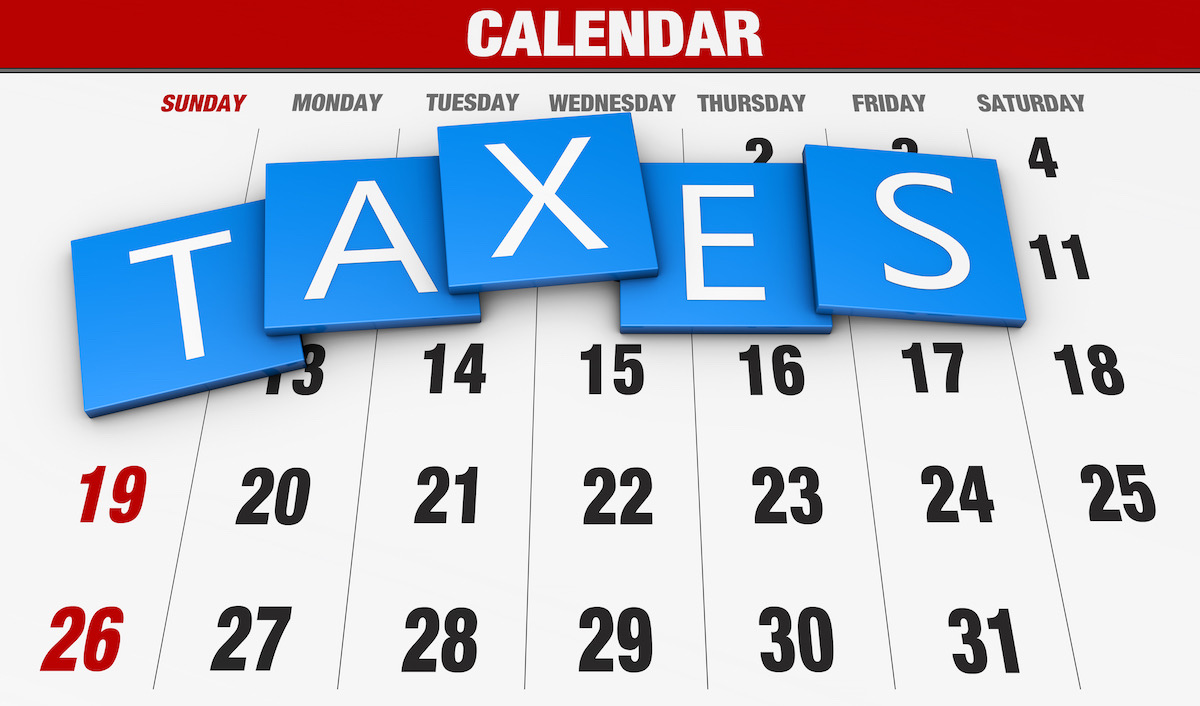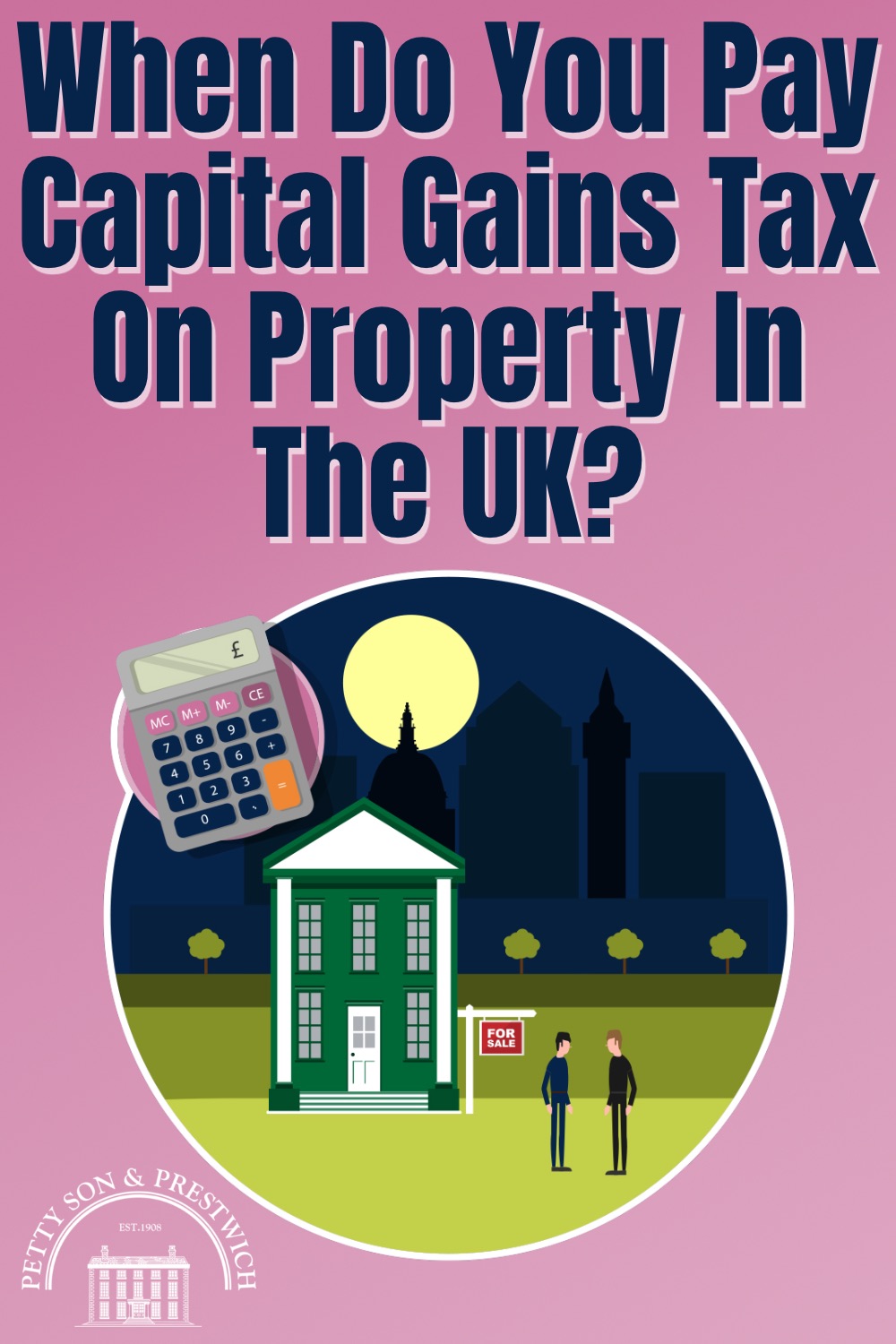The question in this post’s title, When Do You Pay Capital Gains Tax On Property In The UK?, can be asked in a couple of different circumstances. It could be posed by someone enquiring about the type of property sale liable for capital gains tax (CGT) or by somebody who wants to know when the capital gains tax they owe has to be paid.
Don’t worry, we’ll cover both queries below, and we’ll also take a look at how capital gains tax is calculated as well.
Let’s get started with a brief overview of what CGT is all about first, though.
What is capital gains tax?

Here’s the lowdown on UK capital gains tax direct from the people who ask for it, the government:
Capital Gains Tax is a tax on the profit when you sell (or ‘dispose of’) something (an ‘asset’) that’s increased in value.
- Source: gov.uk/capital-gains-tax
As the name suggests, tax is paid on the profit (gain), not the sale price. So, if you sell a property for £450,000, and you previously paid £400,000 for it, the taxable amount will be £50,000.
Although it’s the type of asset we’re concentrating on in this post, capital gains tax isn’t restricted to property. You might be liable for capital gains tax on shares (providing they haven’t been held in an ISA or PEP account), business assets, and personal possessions (if they are valued at £6,000 or more) whenever you decide to sell them.
Does every property sale incur capital gains tax?
So, now we have the definition out of the way, let’s get down to the question of when will capital gains tax be charged on a property. Does every sale incur CGT?
Thankfully, no.
If you are selling your main home, you will automatically be eligible for Private Residence Relief providing:
- you have one home and you’ve lived in it as your main home for all the time you’ve owned it
- you have not let part of it out - this does not include having a lodger
- you have not used a part of your home exclusively for business purposes (using a room as a temporary or occasional office does not count as exclusive business use)
- the grounds, including all buildings, are less than 5,000 square metres (just over an acre) in total
- you did not buy it just to make a gain
Source: gov.uk/tax-sell-home
So, when do you have to pay capital gains tax on a property sale? Let’s take a look.
Capital gains tax on second home
In most instances, selling a second home will result in capital gains tax being owed on any gain you’ve made that’s above your capital gains tax allowance (see, How is capital gains tax calculated?, below for more on CGT allowances).
Capital gains tax on buy-to-let
As with second homes, the sale of a buy-to-let property will usually mean a capital gains tax bill. This, of course, is dependent on an increase in value, as is true for any instance of capital ‘gains’ tax.
Again, said increase needs to be above your capital gains tax allowance before tax becomes due.
Capital gains tax on inherited property
Inherited property is a little different, in that no capital gains tax will be due until you come to sell the asset. This is providing any inheritance tax that was due on the estate has been paid up. A valuation of the property will be made when you inherit the property and any gains will be assessed from there when you come to sell.
One caveat to bear in mind here is inheriting a home that a dependent relative lived in. In this instance, capital gains tax may not be due, but it’s important to clarify this with a financial advisor as there are a number of variables that can impact the final decision.
Capital gains tax on gifted property
Gifting property to a registered charity or your spouse or civil partner will usually mean no capital gains tax will be owed. However, exemption from CGT isn’t always the case, so be sure to double check before proceeding.
There is a key difference between gifted and inherited property when the asset is sold, too. Unlike inherited property, where the gain is measured from the date of the deceased’s death, capital gains tax on gifted property is calculated from the date the benefactor acquired the property, not the date when the gift was given.
It is important, therefore, that they keep a record of the asset’s value at the time of acquisition by the benefactor. If the benefactor took ownership of the property prior to April 1982, the beneficiary should calculate their gain against the market value of the asset on March 31st 1982.
How is capital gains tax calculated?
As you have probably gathered by now, gains are calculated by working out the difference between what was paid for the asset and the price you got for it at the point of sale. Once you have a figure for the gain, the easiest way to calculate how much capital gains tax you owe on your property sale is to use this gov.uk calculator.
There are, however, a few things to bear in mind before you do, as they may influence the final amount you have to pay.
Capital gains allowance
Everyone has a tax-free allowance they can claim before capital gains tax becomes due. This is referred to as the Annual Exempt Amount (AEA), and it can change with every tax year. The current rate (2020/21) stands at £12,300.
What this means is that your gain from the disposal of assets must be above £12,300 before capital gains tax becomes due. If you are reading this post outside of the 2020/21 tax year, you can find the current rate by clicking here.
Jointly owned property
If the property in question is owned jointly between yourself and others, the capital gains tax you owe will only be calculated on your share.
For example, if you own a property with two other people and sell it for an overall profit of £90,000, your capital gains tax will be calculated on £30,000 (£90,000 / 3 = £30,000).
Deductions
Certain things, such as solicitor and estate agent fees can be deducted from your gain, as can certain home improvements. Decorating and regular maintenance work cannot be deducted, though.
Tax relief
We’ve already discussed Private Residence Relief, but you may also get tax relief if your property is deemed to be a business asset or was occupied by a dependent relative.
Special circumstances
Capital gains tax calculations can vary if you sell under special circumstances. These include when you sell a lease or a portion of your land, if you live overseas, or if the property has been compulsorily purchased from you.
Speaking to a financial advisor before submitting your capital gains report is worth the cost, if only to put your mind at rest about whether or not you’re overpaying.
When is capital gains tax due on UK property?

To the second way this post’s title could be interpreted: When do I have to pay capital gains tax after selling my property?
Thankfully, the answer to this one is a little shorter than the first:
Capital gains on UK property sales must be reported and paid within 60 days if the completion date was on or after 27 October 2021. If the sale was completed between 6 April 2020 and 26 October 2021, then you should have reported and paid any capital gains tax due within 30 days.
Failing to adhere to these timeframes may result in a penalty and interest on the owed amount being added to your tax bill. In order to make a payment, you’ll need to create a UK property capital gains tax account, which you can do by visiting this link.
That’s it for another week. If you are thinking of selling your property in or around the capital, make Petty’s your first phone call. We have been helping people like you sell their homes for over 100 years and would love to welcome you into our family. To read what others are saying about how we do business, check out our reviews page before you call.
